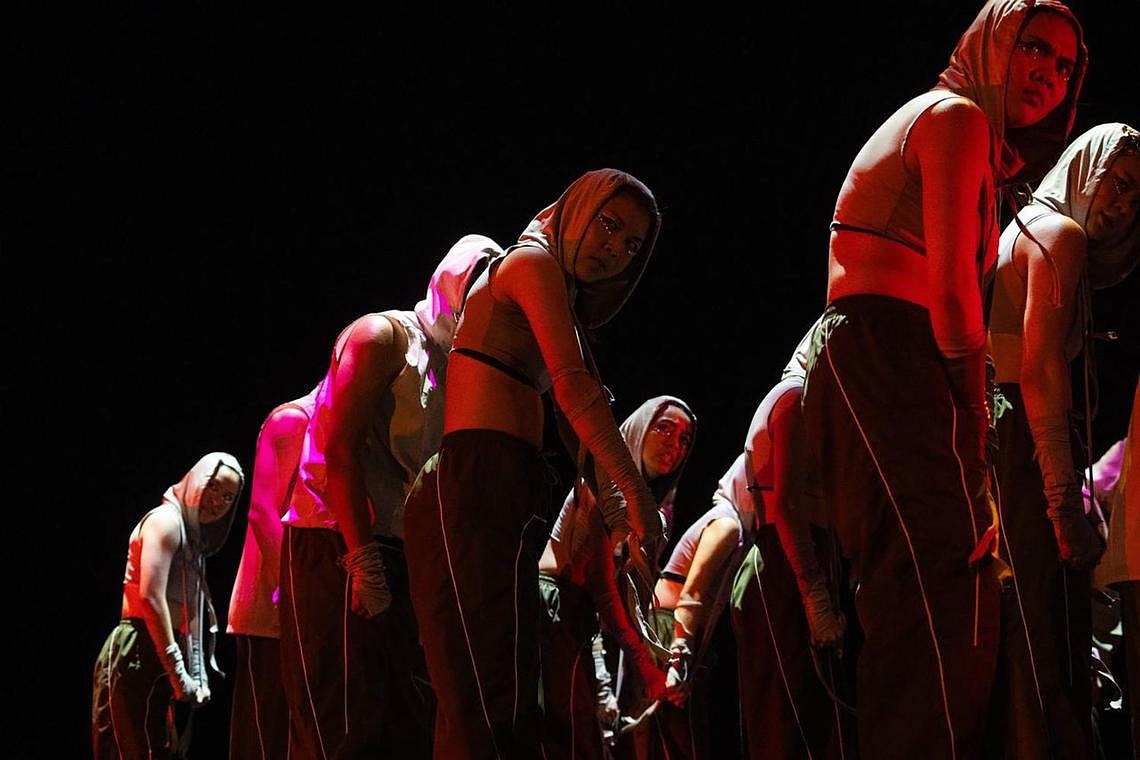How to make friends post-secondary school
1. Now that there are no longer fixed classes, is it still important to form meaningful connections? How should one do so?
Mr Dominic Chan, 19, from ITE College Central, admitted that making friends in secondary school was “much easier”.
Upon starting at ITE, the Higher Nitec accounting student did not plan on making new friends. But during his first year, Mr Chan realised the importance of taking the initiative to socialise with his peers.
For a business ethics module, he was grouped with others who were unable to find a group. “We were allowed to choose (our teammates) but, unfortunately, at that time I was not familiar with anyone and ended up with strangers,” he said.
As his teammates did not share the same motivation or work ethic that he had, he had to take on a significant amount of responsibility. Despite his best efforts, the outcome was not as good as he had hoped.
After that experience, Mr Chan approached other classmates to befriend them.
“I was lucky to meet people who were both funny and had a good work ethic.
“I believe making new friends in ITE is crucial, especially when working on group projects. Building connections and mutual trust with classmates is essential for achieving a good grade point average.”
Singapore Polytechnic (SP) student Megan Ching Sze Ean, 18, said: “I think being selective about whom you want to befriend and actually taking your time to know that person is so important.”

In her first year at the Media, Arts and Design School, Ms Ching found a friend in her “foundry” class, a term used to describe the common foundation semester, after working up the courage to compliment her style. From there, a friendship bloomed between the pair, and they are now inseparable.
“Being open-minded and just working up the courage to approach people is super useful as well.”
2. Is it necessary to join a CCA or student interest group to expand one’s social circle?
Ms Ching said it is helpful to join a co-curricular activity (CCA), and she has found a sense of community at Strictly Dance Zone, SP’s dance club.
“Because my batch is super tight-knit, and we are passionate about the same thing, having this common ground helped me open up to others in my CCA and get close to them since I see them so often.
“If you are naturally an extrovert, I don’t think having a CCA is that important when it comes to making friends. But it helped me step out of my comfort zone and helped me widen my circle as well.”
Victoria Junior College (VJC) student Xu Yimi believes that joining a CCA is the easiest way to make friends in JC, more so than joining the student council or student interest groups.
The 17-year-old is a member of both the school’s choir and Yarnimals, a student interest group that makes and sells crocheted animals at the Society for the Prevention of Cruelty to Animals.
Student interest groups are initiated by students and the level of commitment required is “a lot lower” than that of CCAs, she said.
“I hardly made any friends in my student interest group. We don’t usually meet up, and we just participate in around two or three Values in Action (VIA) events together each year.” Through the VIA programme, students come up with proposals to meaningfully contribute to the community.
She added that many students typically meet their best friends through CCAs.
3. How important is it to volunteer for school events, camps or leadership positions to make friends?
Anglo-Chinese Junior College (ACJC) student Joshua Fang Ern Jie, 17, said: “Volunteering and attending events are very important because it opens you to new social circles.”
Joshua recommended becoming an orientation group leader. He is part of ACJC’s games committee, which is in charge of planning orientation games for new students.
“You’re in an environment where you thrive by working with new people, so it builds a good social skill set.”
At VJC, Yimi has volunteered for school events such as the open house and VIA events, but she makes acquaintances, rather than friends, at most of them.
“I think working together is very different from socialising with one another, so it doesn’t necessarily always lead to friendship,” she said.
At such events, students are “hardly given time to talk to one another”.
Volunteering is also not as effective for Ms Ching, who makes friends mostly through her CCA and classes at the polytechnic.
“For me, it takes time for me to open up, and volunteering at an event or camp is not enough time for me to become close to people, so it’s not my priority when it comes to friendships.”

4. Is it possible to stay close with your secondary school friends, or should we focus on making new ones?
Joshua said: “Yes and no. Some of my closest friends are still ones from secondary school, and even primary school. But it’s also about making time to invest in the said friendships.”
He takes the time to reflect and choose which friends he wishes to invest his effort in, but said “the effort has to be mutual”.
“In a new school, your mindset changes as you age, so it’s always good to be open-minded and befriend people you wouldn’t have when you were younger,” he added.
“Doesn’t hurt knowing more people in your life either,” he quipped.
Yimi said that it is “definitely possible” and has managed to sustain a connection with two of her secondary school friends, despite drifting apart from others.
“The three of us need to consciously make an effort to continue our close relationship, like frequently meeting up and updating one another through text,” she added, noting that her busy JC life makes maintaining friendships even more difficult.
“But with the subject combinations in JC, you will easily meet people with similar interests as you. I definitely met quite a few interesting people that gave me different experiences from (those in) secondary school.”
5. How can I find time to go out with friends amid busy schedules?
While studies are important, Mr Chan believes it is still possible to find a balance and make time for friends.
To maintain his secondary school friendships, he occasionally initiates meet-ups, online gaming sessions, or Discord calls. “This helps us stay connected and ensures our friendships remain a part of our lives,” he said.
Joshua goes out with his friends at least once a week to take a break from school life.
“My friends are all quite understanding, and we all shoulder the responsibility to try our best and make sure that we make room for each other in our lives.”
Holding study calls with friends, even while on mute, helps them bond and complete their work together, he said.
“Friendships need time and effort to grow, and why wouldn’t you want to invest your time in people you care about?”
Get The New Paper on your phone with the free TNP app. Download from the Apple App Store or Google Play Store now


